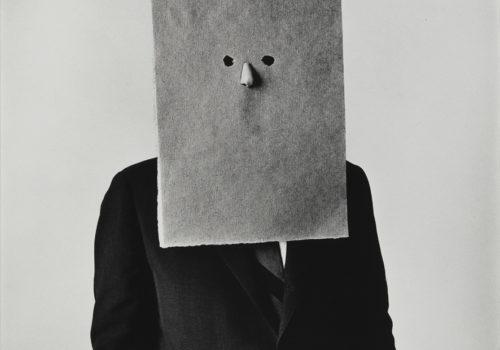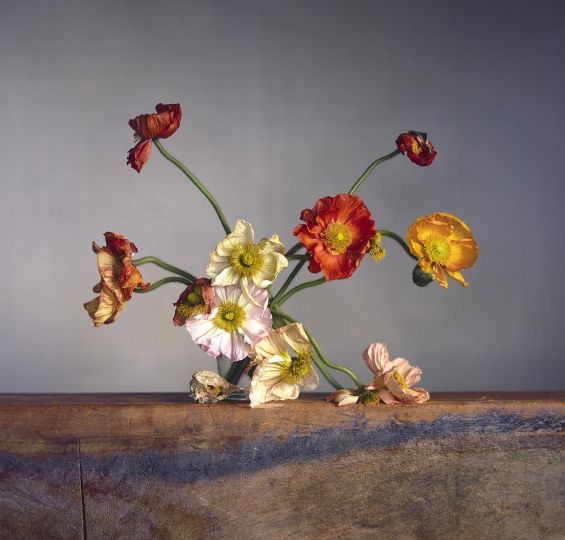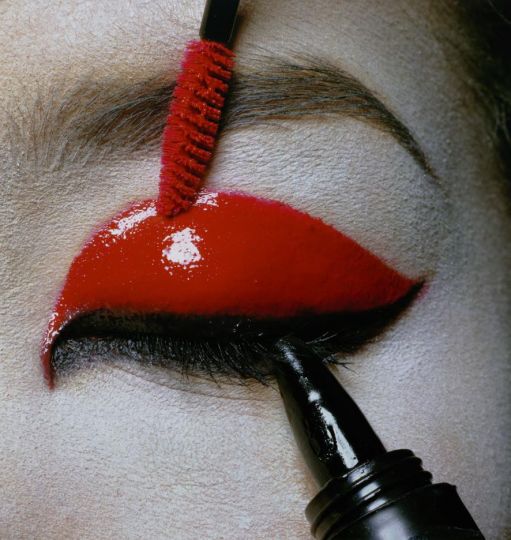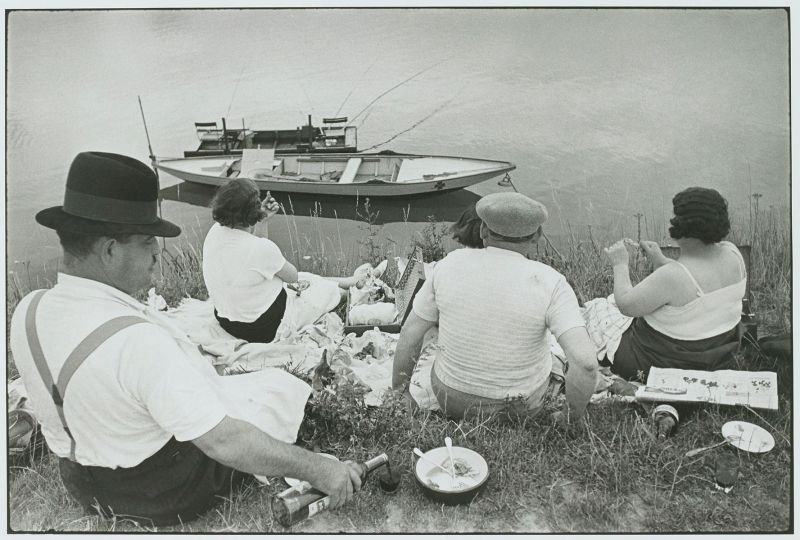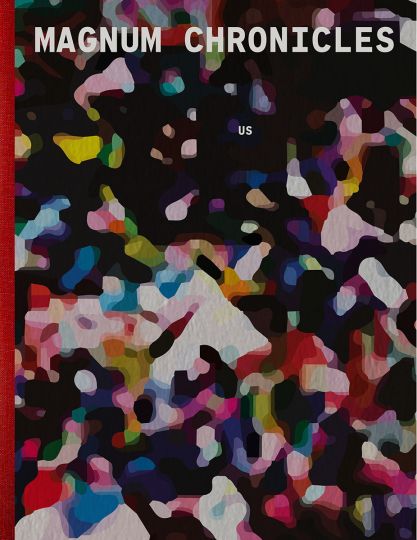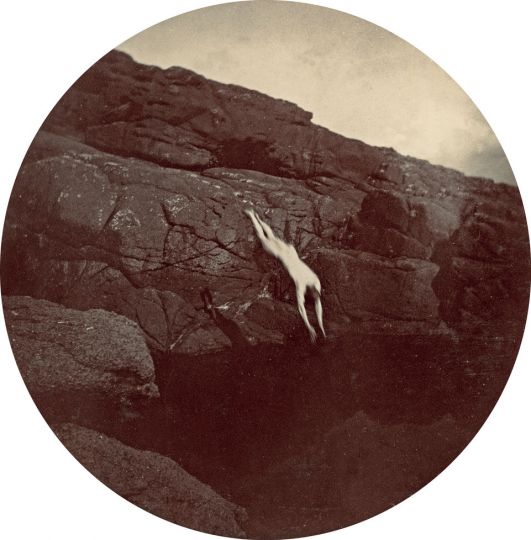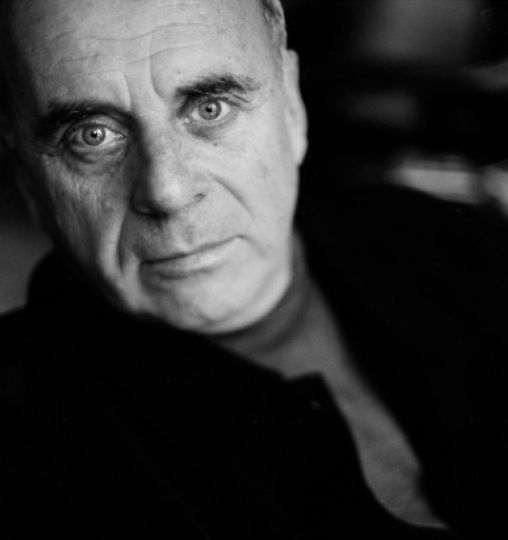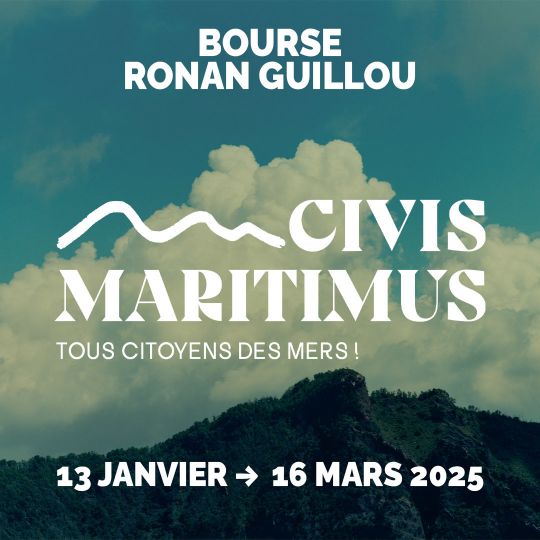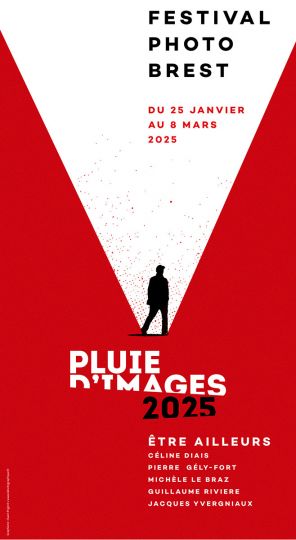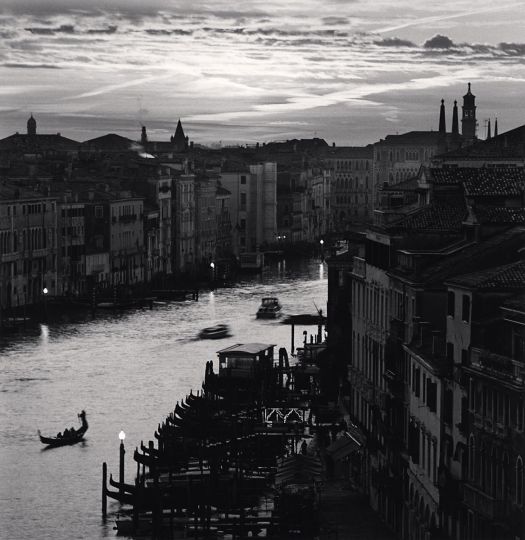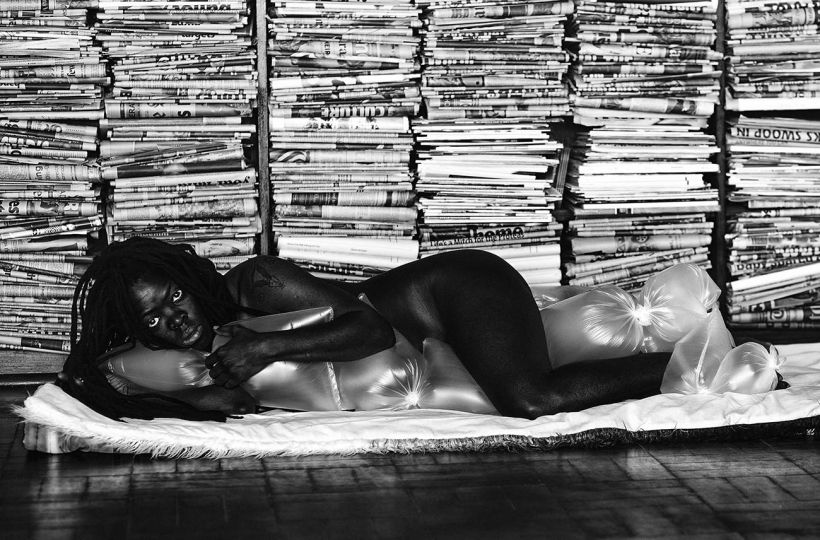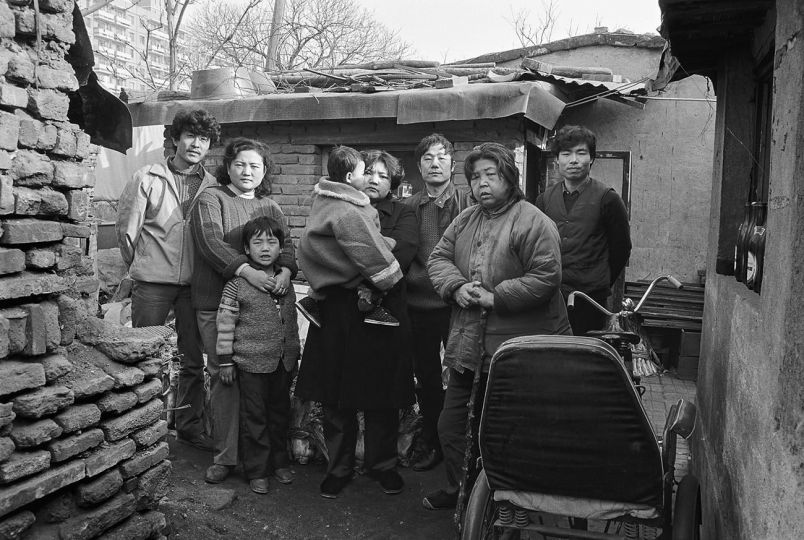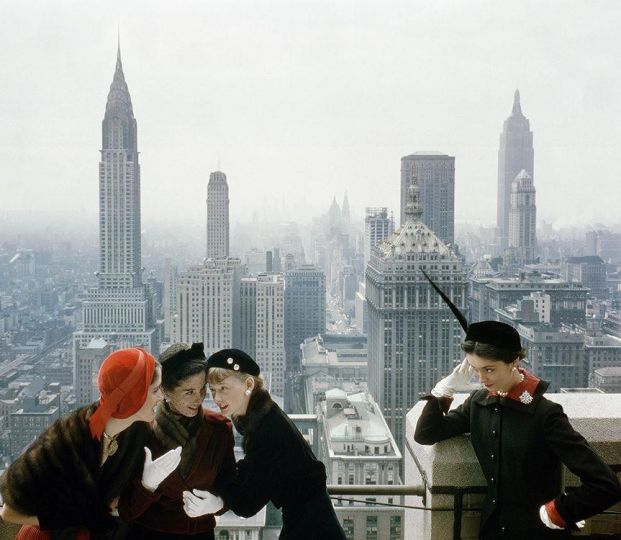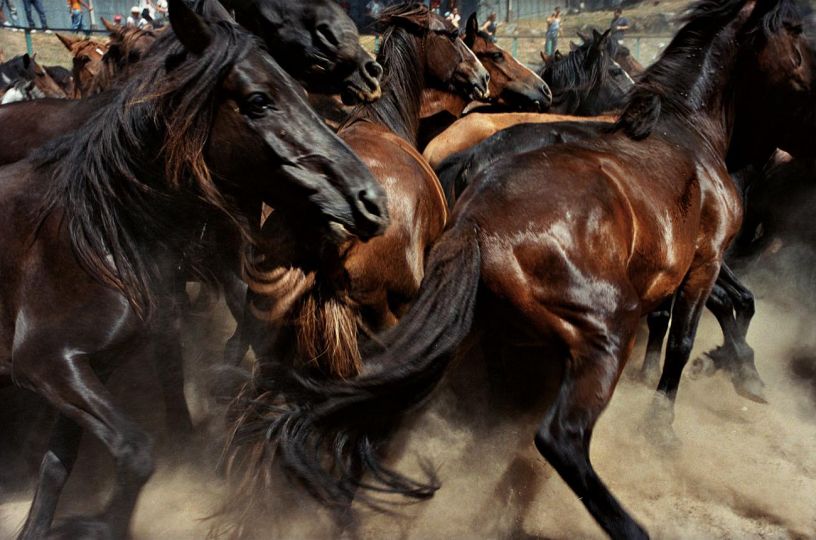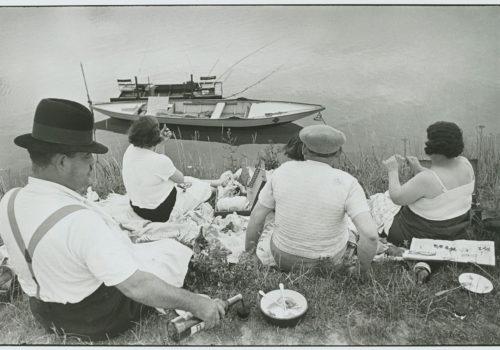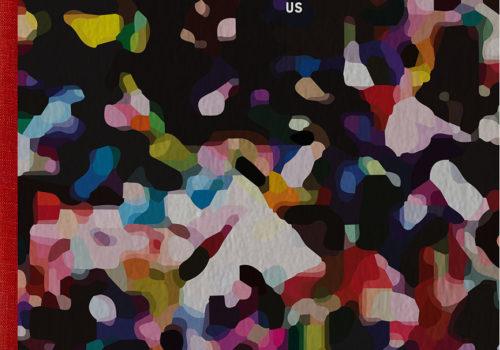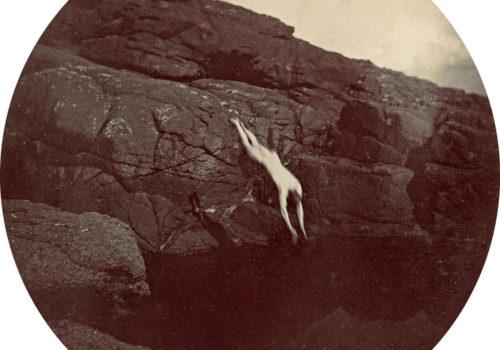Deauville is a generous land for photography. The idyll of the fascinations of Robert Doisneau, Robert Capa or Gisèle Freund and the town can today boast of hosting on its shores and within its walls, one of the most exciting festivals, Planches Contact.
Since 2021, Deauville has had a multi-purpose cultural facility, in place of a nineteenth-century convent of the Franciscan sisters, which has been remodelled and upgraded by the architect Alain Moatti into a multi-purpose venue: a museum with numerous exhibition rooms, an art centre in a former cloister with a now-covered sky, and a media library with large reading couches, punctuated by islands conducive to the study and display of the city’s collections.
The Franciscans illustrate this recent model of multi-purpose cultural facilities, like the Filature in Mulhouse, which centralise diverse cultural programming and practices in the hope of diversifying their audience.
The success of the Franciscaines seems to be consistent, eighteen months after its opening and nearly 300,000 visitors, in a city that no longer lives by the rhythm of the seasons. It must be said, with coquetry, that it is quite pleasing to be able to work or, failing that, to take an impromptu nap, surrounded by Larry Fink or Bernard Plossu.
The well-deserved acclaim for this building takes a laudatory turn with the Irving Penn retrospective. For the first time, the entire Irving Penn collection at the Maison Européenne de la Photographie is on display, comprising 109 prints. The history of the Parisian institution with the American photographer, who was born in 1919 in Plainfield (New Jersey) and died in 2009 in New York, is rich in several stages.
Jean-Luc Monterosso, the MEP’s first director, and Pascal Höel, head of the collections and curator of the exhibition, became interested in Penn’s work in the early 1990s, which was then confined to a devalued vision of fashion photography, and acquired a first set of works, followed by a substantial donation from the artist in 1996. In 2019, the Irving Penn Foundation completed this collection with a donation of 46 works, making it by far the most representative collection of the artist in France, if not in Europe.
“Masterpieces from the MEP Collection” shows the iconic sets, already recently appreciated during the major Irving Penn retrospective at the Grand Palais (2018). These “must-haves” form the core of the artist’s work, from iconic portraits of artists (Picasso, Duchamp, Cocteau) on neutral backgrounds to those permeated with mischief of his wife, the dancer and later model Lisa Fonssagrives-Pennn. These compositions made the glory of the artist as well as the most beautiful pages of Vogue, or more sporadically, of Harper’s Bazaar.
These are the poses with the same curious look, the humble and even character for the plump children of the Cuzco people or the more graphic details of eyeliners, mascaras, enhancers and other fashion accessories that give an eyelid the twist of a geometric composition close to the arabesques of Aurélie Nemours.
In this respect, the exhibition is impeccable, or if you like, highly representative. It fulfils its function: to show a complex work, with a repeated grace despite the objects of the artist’s interest in the female body, the face of men and the folds of a cigarette butt. But it gets restless! It takes an unexpected turn, with a little-known background in Penn’s series, “The Bath (San Francisco Ballet Dancers)”. Comprising 14 selenium-tinted prints, this series, shown only in 1996, forms a retreat or island within the cloister on three walls.
It is a work of great beauty. In 1967, Irving Penn met the Dancers’ Workshop of San Francisco directed by Anna Halprin. This troupe challenged the established codes of choreography by mixing improvisation and freedom of movement, street theatre and audience participation, and played on several musical genres in its performances. She was invited by the Wadsworth Atheneum in Hartford to create a choreography around the bath and its ordinary dimension, such as the simple act of washing, or on the contrary, erotic and ritualistic when the bath becomes collective.
Penn observes this choreography in a rehearsal studio before immortalizing the dancers’ gestures, presumably frozen in front of the photographer’s medium format lens. The play of the naked dancers is in his lens an elegy to the softness of the bodies. The silhouettes are carried in this constant impression, when it comes to the play of the lifts and releases, of a fragile weightlessness. The embraces seem frank or delicate, sometimes passionate or entirely devoted to the fictional exercise of bathing.
Beyond the subject, there are obvious bridges with the history of painting, whether we find in one print the intimate toilets of Degas’ prostitutes or the repeated exercises of the same painter’s little dancers. A whole history is still to be woven with Poussin’s lascivious women, abandoned to the arm and frusque desires of the man, or when the troupe becomes one again, as of a uniform and moving seaweed which recalls the equally successful clichés of Merce Cunningham’s troupe by Robert Rauschenberg in 1961.
This series, full of tenderness, is also full of tenderness because it shows a naked male image, where the dancer often abandons himself to his partner’s embrace, where his face breaks with the hardness that his society, even more so in the late 1960s, imposed on him. She speaks of the possibility of equal love, of embraces with full emotions. The fiction of the bath, conceived by Anna Halprin and fixed by Penn, provides this opportunity, that of a moment when woman and man surrender themselves to each other in perfect equality. Sometimes it takes art, and the memory of Genesis, to remind us of this possibility.
Practical information
Irving Penn. Masterpieces from the MEP collection.
Curator: Pascal Hoël, Head of the MEP collections and Frédérique Dolivet, Deputy Head of the MEP collections
For the first time, the entire collection of Irving Penn’s photographs at the Maison Européenne de la Photographie will be on display.
From 4 March to 28 May 2023, 145 bis avenue de la République, 14800 Deauville
https://lesfranciscaines.fr/

